Principles of Open Education and OER
This blog post was originally posted on the University of Edinburgh’s Curriculum Transformation Hub.
The principles of open education were initially outlined in the 2008 Cape Town Declaration [1], which advocates that everyone should have the freedom to use, customize, and redistribute educational resources without constraint, to nourish the kind of participatory culture of learning, sharing and cooperation that rapidly changing knowledge societies need.
Broadly speaking, open education encompasses teaching techniques and academic practices that draw on open technologies, pedagogical approaches and open educational resources (OER) to facilitate collaborative and flexible learning. This may involve both teachers and learners engaging in the co-creation of learning experiences, participating in online peer communities, using, creating and sharing open educational resources (OER) and open knowledge, sharing experiences and professional practice, and engaging with interdisciplinarity and open scholarship.
Although open education can encompass many different approaches, open educational resources, or OER, are central to this domain. The UNESCO Recommendation on OER [2] defines open educational resources as
“teaching, learning and research materials in any medium, digital or otherwise, that reside in the public domain or have been released under an open license that permits no-cost access, use, adaptation and redistribution by others with no or limited restrictions.”
Open Education and OER at the University of Edinburgh
At the University of Edinburgh, we believe that open education and OER, are fully in keeping with our institutional vision, purpose and values, to discover knowledge and make the world a better place, while ensuring that our teaching and research is diverse, inclusive, accessible to all and relevant to society. In line with the UNESCO Recommendation on OER, we also believe that OER and open knowledge are critical to achieving the aims of the United Nations Sustainable Development Goals [3].
To support open education and the creation and use of OER, the University has an Open Educational Resources Policy [4], approved by our Learning and Teaching Committee, which encourages staff and students to use, create and publish OERs to enhance the quality of the student experience, expand provision of learning opportunities, and enrich our shared knowledge commons. We also have a central OER Service [5], based in Information Services Group, that provides staff and students with advice and guidance on creating and using OER, engaging with open education and developing digital and copyright literacy skills. Understanding authorship, copyright, and licensing is increasingly important at a time when both staff and students are actively engaged in co-creating digital resources and open knowledge.
Benefits and Risks of Openness
Open education approaches, such as collaborative flexible learning and co-creation of learning experiences, can be beneficial in many different contexts, but they are particularly well suited to hybrid teaching and learning, where no separation is made between digital and on campus student cohorts, and students are brought together by the way teaching is designed, enabling them to move between digital and classroom-based learning activities.
Engaging with open education, OER and open knowledge through curriculum assignments can help to develop a wide range of core disciplinary competencies and transferable attributes including:
- Digital, data and copyright literacy skills,
- Understanding how knowledge and information is created shared and contested online,
- Collaborative working and collective knowledge creation,
- Information synthesis,
- Critical thinking and source evaluation,
- Writing as public outreach.
However, it’s also important to consider the risks of openness, as any understanding of openness is highly personal, contextualised and continually negotiated. We all experience openness from different perspectives, depending on different intersecting factors of power, privilege, inclusion and exclusion.
In his 5Rs for Open Pedagogy [6] Rajiv Jhangiani identifies Risk as being one of his values for Open Pedagogy.
“Open pedagogy involves vulnerabilities and risks that are not distributed evenly and that should not be ignored or glossed over. These risks are substantially higher for women, students and scholars of colour, precarious faculty, and many other groups and voices that are marginalized by the academy.”
Many systemic barriers and structural inequalities exist in open spaces and communities; open does not necessarily mean accessible to all. When engaging with open education, we need to be aware of our own privilege and be sensitive to those who may experience openness differently, and we need to address the systemic barriers and structural inequalities that may prevent others from engaging with open education and to enable everyone to participate equitably, and on their own terms.
The University has an invaluable Digital Safety and Citizenship Web Hub [7], that offers comprehensive information and resources on a range of digital safety and citizenship-related issues, including training and events, and advice on being an informed digital citizen.
If we’re sensitive to these risks and inequities and work to mitigate them, integrating open education and OER into the curriculum can bring significant benefits, including building networks, relationships and communities, fostering agency and empowerment, developing strong societal values and an appreciation of equity, intersectionality and social justice.
Open Education in the Curriculum
Wikimedia in the Curriculum
One way to engage with open education and the creation of open knowledge is by contributing to Wikipedia, the world’s biggest open educational resource and the gateway through which millions of people seek access to knowledge. Working together with the University’s Wikimedian in Residence, Ewan McAndrew, colleagues from a number of schools and colleges have integrated Wikipedia and Wikidata editing assignments into their courses. Editing Wikipedia provides valuable opportunities for students to develop their digital research and communication skills, and enables them to contribute to the creation and dissemination of open knowledge. Writing articles that will be publicly accessible and live on after the end of their assignment has proved to be highly motivating for students, and provides an incentive for them to think more deeply about their research. It encourages them to ensure they are synthesising all the reliable information available, and to think about how they can communicate their scholarship to a general audience. Students can see that their contribution will benefit the huge audience that consults Wikipedia, plugging gaps in coverage, and bringing to light hidden histories, significant figures, and important concepts and ideas. This makes for a valuable and inspiring teaching and learning experience, that enhances the digital literacy, research and communication skills of both staff and students.
Talking about a Wikipedia assignment that focused on improving articles on Islamic art, science and the occult, Dr Glaire Andersen, from Edinburgh College of Art commented
“In a year that brought pervasive systemic injustices into stark relief, our experiment in applying our knowledge outside the classroom gave us a sense that we were creating something positive, something that mattered. As one student commented, “Really love the Wikipedia project. It feels like my knowledge is actually making a difference in the wider world, if in a small way.”
Other examples include Global Health Challenges postgraduates collaborating to improve Wikipedia articles on natural or manmade disasters. History students re-examining the legacy of Scotland’s involvement in the transatlantic slave trade and presenting a more positive view of black British history. Digital Education Masters students collaborating to publish a new entry on Information Literacies. And Reproductive Biology Honours students work in groups to publish new articles on reproductive biomedical terms.
Wikimedia in the Classroom assignment, Aine Kavanagh, Reproductive Biology, by Ewan McAndrew, Wikimedian in Residence, University of Edinburgh, CC BY SA.
Our Wikimedian in Residence provides a free central service to all staff and students across the University, further information including testimonies from staff and students who have taken part in Wikimedia in the Curriculum assignments is available here: Wikimedian in Residence.
Open Education and Co-creation – GeoScience Outreach
Another important benefit of open education is that it helps to facilitate the co-creation of knowledge and understanding. Co-creation can be described as student led collaborative initiatives, often developed in partnership with teachers or other bodies outwith the institution, that lead to the development of shared outputs. A key feature of co-creation is that is must be based on equal partnerships between teachers and students and “relationships that foster respect, reciprocity, and shared responsibility”[8].
One successful example of open education and co-creation in the curriculum is the Geosciences Outreach Course, which provides students with an opportunity to work with a wide range of clients including schools, museums, outdoor centres, and community groups, to design and deliver resources for STEM engagement. Students may work on project ideas suggested by the client, but they are also encouraged to develop their own ideas. This provides students with the opportunity to work in new and challenging environments, acquiring a range of transferable skills that enhance their employability. They gain experience of science outreach, public engagement, teaching and learning, and knowledge transfer while at the same time developing communication, project and time management skills.
A key element of the course is to develop resources with a legacy that can be reused by other communities and organisations. Open Content Curation student Interns employed by the University’s OER Service repurpose these materials to create open educational resources aligned to the Scottish Curriculum for Excellence, which are shared online through Open.Ed and TES Resources [9] where they can be found and reused by school teachers and learners. These OERs, co-created by our students, have been downloaded over 58,000 times and the collection was recently awarded Open Education Global’s Open Curation Award [10].
Open Education Awards for Excellence: Open Curation / Repository – University of Edinburgh by Stephanie (Charlie) Farley, CC BY SA.
OER Assignments – Digital Futures for Learning
OER creation assignments are also incorporated into the Digital Futures for Learning module, part of the MSc in Digital Education, where students create open resource that critically evaluate the implications of educational trends, such as the future of writing, complexity in education, and radical digital literacy. Creating genuinely open resources that are usable and reusable requires careful attention to issues such as accessibility, structure, audience, and licensing. The students need to critically consider and apply their learning, and in doing so are able to create practical re-usable resources, while demonstrating a range of transferable skills and competencies.
Commenting on this OER creation assignment, course leader Dr Jen Ross said
“Experiencing first-hand what it means to engage in open educational practice gives student an appetite to learn and think more. The creation of OERs provides a platform for students to share their learning. In this way, these assignments can have ongoing, tangible value for students and for the people who encounter their work.” [11]
Reusing and Repurposing OER
Reusing and customising existing open educational resources can help to diversify and expand the pool of teaching and learning resources available to staff and students.
LGBT+ Resources for Medical Education
In 2016 undergraduate medical students developed a suite of resources covering lesbian, gay, bisexual and transsexual health. Although knowledge of LGBT+ health and of the sensitivities needed to treat LGBT patients are valuable skills for qualifying doctors, these issues are not well-covered in the medical curricula. This project remixed and repurposed resources originally created by Case Western Reserve University, and then contributed them back to the commons as OER. New open resources including digital stories recorded from patient interviews and resources for Secondary School children, were also created and released as OER. In a recent blog post on Teaching Matters [12], Dr. Jeni Harden, Senior Lecturer in Social Science and Health, reflected on how these resources have contributed to the medicine curriculum over the past five years.
Fundamentals of Music Theory
Fundamentals of Music Theory [13] is an open textbook co-created by staff and students from the Reid School of Music with support from the University’s OER Service. This Student Experience Grant funded collaborative project [14] repurposed existing open licensed MOOC content and blended-learning course materials to co-create a proof-of-concept open textbook. The project enabled our student partners to develop digital and copyright literacy skills, an understanding of OER and open textbooks, familiarity with ebook applications, and experience of working with educational media and content. Their input enhanced the original teaching materials and brought about further teaching and learning enhancement. Open textbooks have the potential to benefit universities in the post-pandemic world by reducing textbook costs, benefit staff by providing access to easily customisable open textbooks, and benefit students by providing free, high quality digital learning materials. Furthermore, open textbooks and OER have the potential to facilitate the democratic reshaping of teaching materials through student engagement and co-creation.
Further Information
These are just some examples of ways that open education and OER have already been integrated into the curriculum here at the University of Edinburgh. They demonstrate how valuable co-creating open knowledge and open educational resources through curriculum assignments can be to help students develop essential digital skills, core competencies and transferable attributes, and enable our learners to become fully engaged digital citizens.
For further information about open education and OER please visit the University’s OER Service at Open.Ed or e-mail us at open.ed@ed.ac.uk.
References
- Capetown Open Education Declaration https://www.capetowndeclaration.org/read/
- UNESCO, (2019), Recommendation on Open Educational Resources, http://portal.unesco.org/en/ev.php-URL_ID=49556&URL_DO=DO_TOPIC&URL_SECTION=201.html
- United Nations Sustainable Development Goals https://sdgs.un.org/goals
- University of Edinburgh Open Educational Resources Policy, https://www.ed.ac.uk/files/atoms/files/openeducationalresourcespolicy.pdf
- OER Service, https://open.ed.ac.uk/
- Jhangiani, R, (2019), 5Rs for Open Pedagogy, Rajiv Jhangiani, Ph.D. Blog, https://thatpsychprof.com/5rs-for-open-pedagogy/
- Digital Safety and Citizenship Web Hub, https://www.ed.ac.uk/information-services/help-consultancy/is-skills/digital-safety-and-citizenship
- Lubicz-Nawrocka, T., (2019), An introduction to student and staff co-creation of the curriculum, Teaching Matters Blog, https://www.teaching-matters-blog.ed.ac.uk/an-introduction-to-student-and-staff-co-creation-of-the-curriculum/
- University of Edinburgh Open.Ed Hub, TES Resources, https://www.tes.com/teaching-resources/shop/OpenEd
- OE Awards for Excellence https://awards.oeglobal.org/awards/2021/open-curation/open-ed-collection-of-geoscience-outreach-oers-and-more-on-tes/
- Ross, J., (2019), Digital Futures for Learning: An OER assignment, Open.Ed Blog, https://open.ed.ac.uk/digital-futures-for-learning-an-oer-assignment/
- Farley, S. and Harden, J., (2021), Five years on: The LGBT+ Healthcare 101 OER, Teaching Matters Blog, https://www.teaching-matters-blog.ed.ac.uk/five-years-on-the-lgbt-healthcare-101-oer/
- Edwards, M., Kitchen, J., Moran, N., Moir, Z., and Worth, R., (2021), Fundamentals of Music Theory, Edinburgh Diamond, DOI: https://doi.org/10.2218/ED.9781912669226
- Open eTextbooks for Access to Music Education Project, https://blogs.ed.ac.uk/opentextbooks/
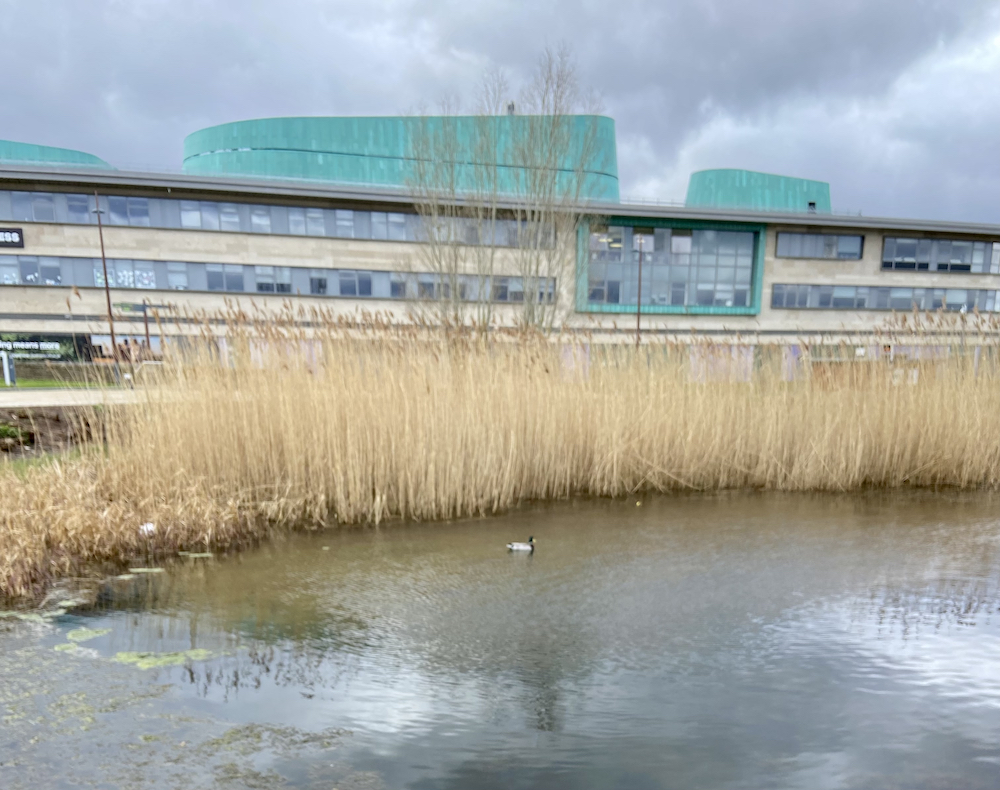

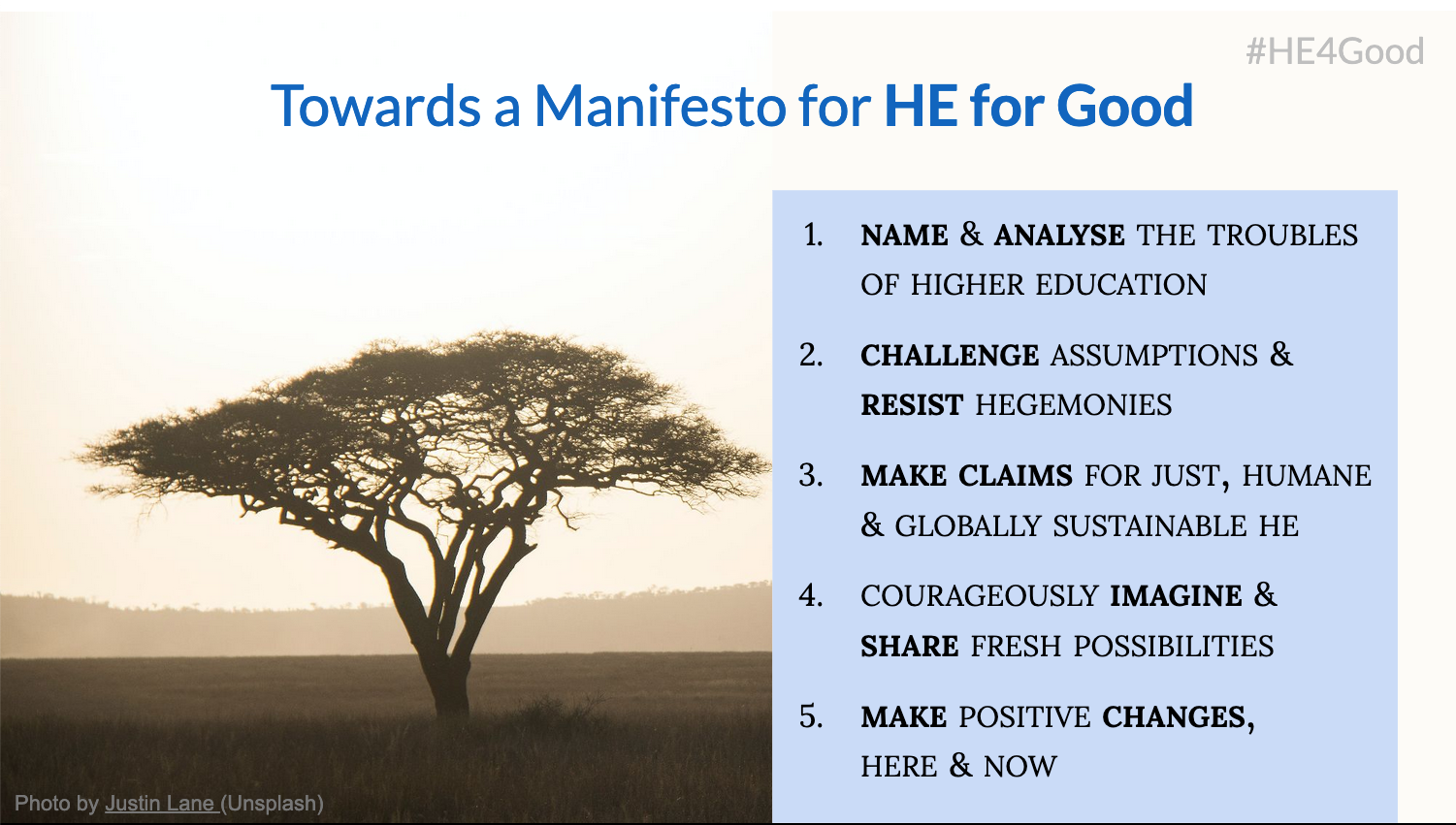
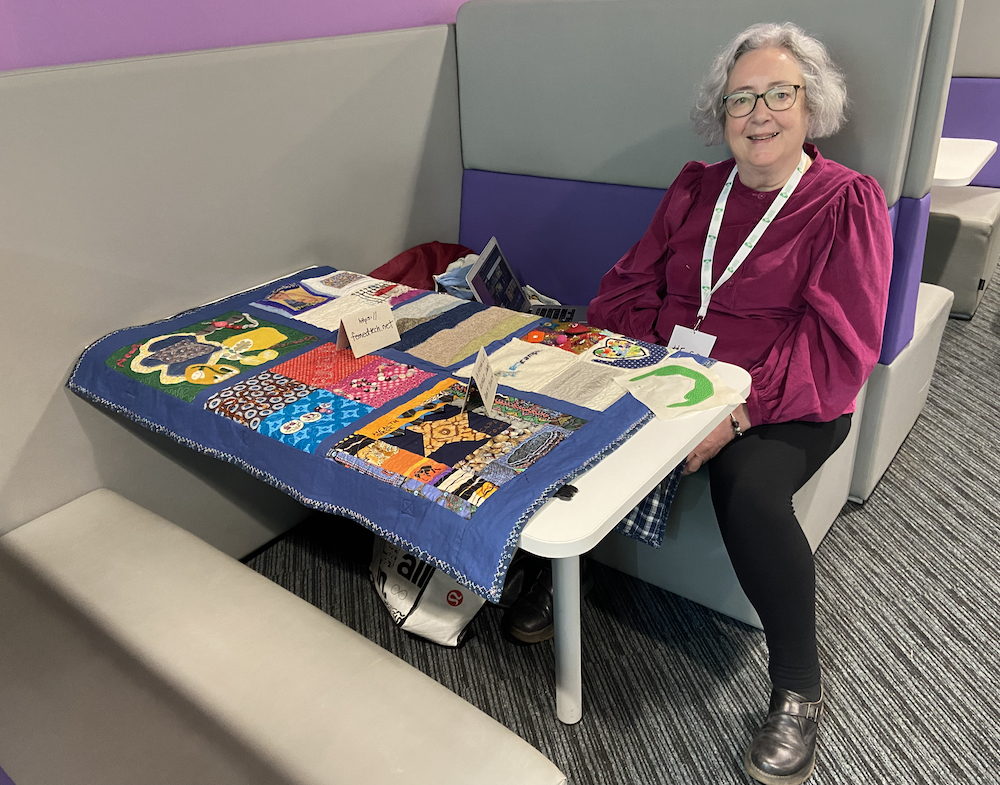
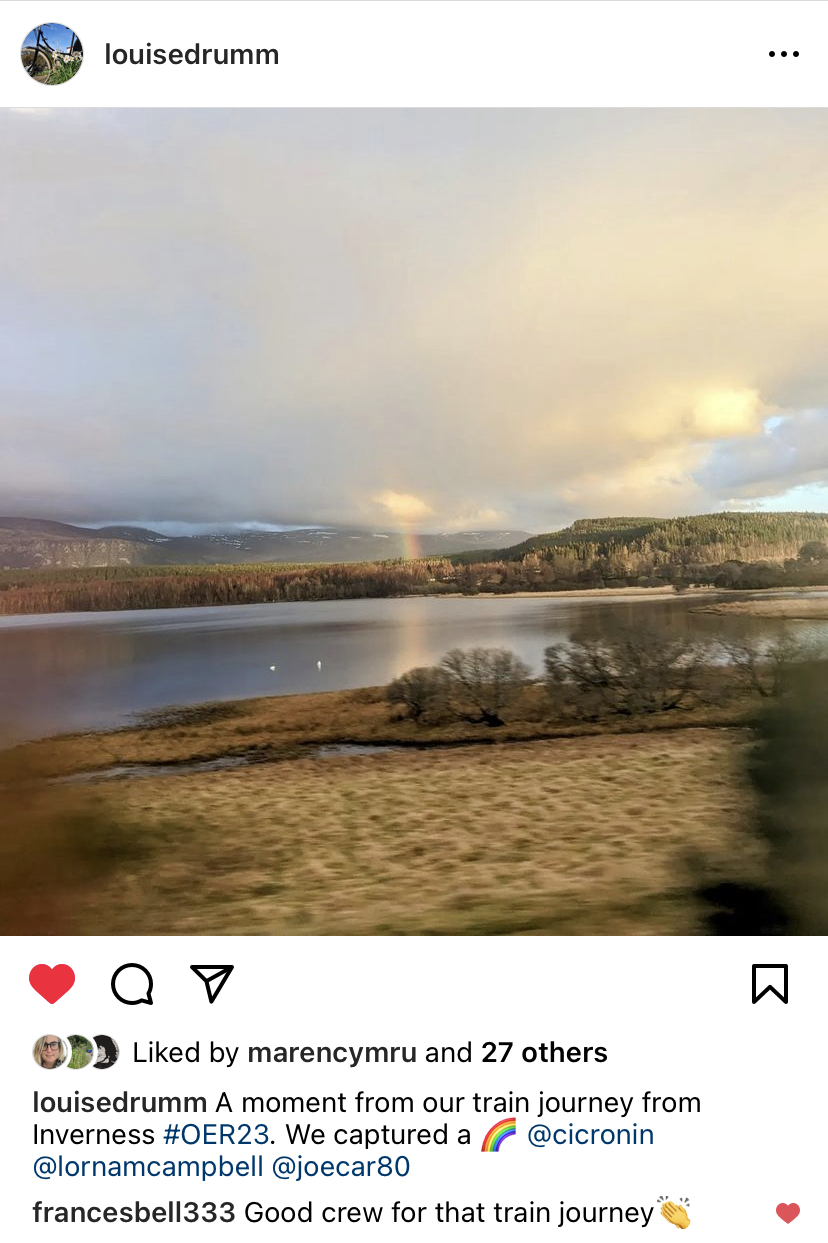
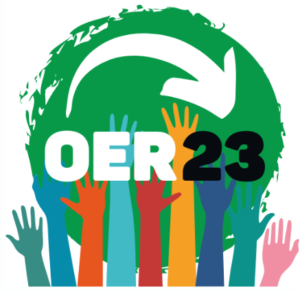 This blog post was originally posted on the
This blog post was originally posted on the 
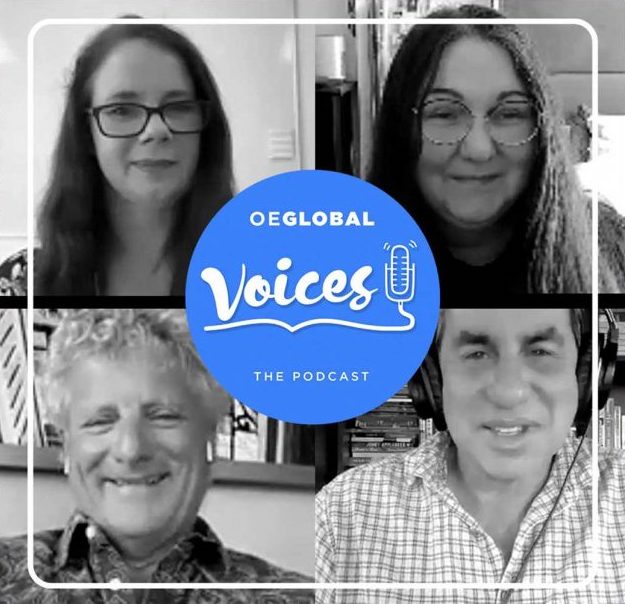 Charlie talked about the GeoScience Outreach course where students co-create teaching and learning materials that are then adapted by Open Content Creation interns and shared on
Charlie talked about the GeoScience Outreach course where students co-create teaching and learning materials that are then adapted by Open Content Creation interns and shared on 

 (@Puiyin)
(@Puiyin) 




